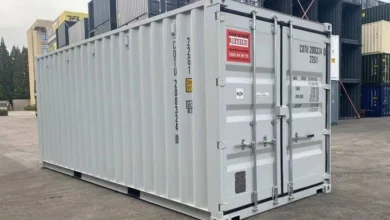
Bolts and Nuts: Essential Components for Construction and Engineering
Bolts and nuts are fundamental fastening components used in a wide range of applications, from construction and manufacturing to automotive and aerospace industries. These seemingly simple yet crucial hardware elements play a vital role in holding various structures and components together, ensuring stability, safety, and reliability. In this article, we’ll explore the significance of bolts and nuts, their types, applications, and importance in different sectors.
Table of Contents
1. Understanding Bolts and Nuts:
Bolts and nuts form a threaded fastening system commonly used to join two or more components securely. The bolt, typically a cylindrical rod with external threads, is inserted through aligned holes in the components to be joined. The nut, a small metal block with internal threads, is then threaded onto the bolt and tightened to create a strong and durable connection. This simple yet effective fastening mechanism allows for easy assembly, disassembly, and maintenance of various structures and machinery.
2. Types of Bolts and Nuts:
There are numerous types of bolts and nuts available, each designed for specific applications and requirements:
Hex Bolts and Nuts: Hex bolts, characterized by their hexagonal heads and threads, are the most common type of bolts used in construction and general-purpose applications. Hex nuts, which have internal threads and six flat sides, are paired with hex bolts for secure fastening.
Socket Head Cap Bolts and Nuts: Socket head cap bolts feature a cylindrical head with an internal hexagonal socket, allowing for high-torque applications and tight clearances. They are commonly used in machinery, automotive, and aerospace industries where space is limited.
Stud Bolts and Nuts: Stud bolts are threaded rods with threads on both ends, designed to be inserted into a pre-drilled hole and secured with nuts on both ends. They are often used in flange connections for pipelines, pressure vessels, and other high-pressure applications.
Anchor Bolts and Nuts: Anchor bolts are embedded into concrete or masonry structures to provide a secure attachment point for equipment, machinery, or building components. They are commonly used in construction for securing columns, beams, and structural members to foundations.
Toggle Bolts and Wing Nuts: Toggle bolts feature a spring-loaded toggle mechanism that expands behind the mounting surface, providing strong support in hollow walls or ceilings. Wing nuts have two large, flat wings for easy hand tightening, making them ideal for temporary or adjustable connections.
3. Applications of Bolts and Nuts:
Bolts and nuts are used in a wide range of industries and applications, including:
Construction: Bolts and nuts are essential for constructing buildings, bridges, highways, and other infrastructure projects. They are used to connect structural steel members, concrete forms, and prefabricated components, ensuring stability and structural integrity.
Manufacturing: Bolts and nuts are used in manufacturing processes to assemble machinery, equipment, and fabricated metal products. They play a crucial role in securing components together and facilitating efficient production processes.
Automotive and Aerospace: Bolts and nuts are integral components of vehicles, aircraft, and spacecraft, holding together engine parts, chassis components, and critical systems. They must meet stringent quality and performance standards to ensure safety and reliability in demanding environments.
Marine and Offshore: In marine and offshore industries, bolts and nuts are subjected to harsh environmental conditions such as corrosion, saltwater exposure, and high temperatures. Specialized materials and coatings are used to enhance corrosion resistance and durability in marine applications.
Infrastructure and Utilities: Bolts and nuts are used in infrastructure projects such as pipelines, water treatment plants, and electrical substations. They provide secure connections for piping systems, equipment mounts, and structural supports, ensuring efficient operation and reliability.
4. Importance of Bolts and Nuts:
Bolts and nuts are indispensable components in construction, engineering, and manufacturing industries for several reasons:
Structural Integrity: Bolts and nuts play a critical role in maintaining the structural integrity of buildings, bridges, machinery, and other structures. They provide secure connections that withstand various loads, vibrations, and environmental conditions.
Safety and Reliability: Properly installed RFC bolts and nuts ensure the safety and reliability of structures and equipment, preventing failures, accidents, and downtime. Regular inspection and maintenance of fasteners are essential to detect issues and prevent potential hazards.
Ease of Assembly and Maintenance: Bolts and nuts offer a simple and efficient means of assembly, disassembly, and maintenance of machinery, equipment, and structures. They allow for easy access to components for repair, replacement, or upgrades, minimizing downtime and cost.
Customization and Adaptability: Bolts and nuts come in various sizes, materials, and configurations to meet specific requirements and applications. Customized fastening solutions can be designed to accommodate unique challenges and ensure optimal performance in diverse environments.
Cost-Effectiveness: Bolts and nuts are cost-effective fastening solutions compared to welding, riveting, or adhesive bonding methods. They require minimal tooling and labor for installation, making them a cost-effective choice for large-scale projects and mass production.
In conclusion, bolts and nuts are essential components in construction, engineering, and manufacturing industries, providing secure and reliable connections for a wide range of applications. Their versatility, durability, and ease of use make them indispensable tools for assembling structures, machinery, and equipment with safety, efficiency, and precision. By understanding the significance of bolts and nuts and selecting the right fastening solutions for specific requirements, businesses can ensure the integrity, safety, and longevity of their projects and products.








